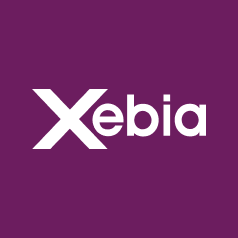Who better to ask about the latest trends in the marvelous world of data and AI than Xebia's industry experts, Diederik Greveling and Niels Zeilemaker? If you want to get started with data, where would they recommend you begin? And, what can we expect to see over the next few years in a field that is so rapidly evolving?
What's happening in the data and AI space?
Many small to medium-sized businesses now want to work with data themselves. These companies ask us for a self-service analytics solution that enables people, even those not tech-savvy, to work with data. However, this requires data to be easily accessible and understandable. Now more than ever, we must lower the threshold for all businesses to start utilizing data.
"Self-service solutions empower end-users and help companies scale, a new generation of tools makes data more accessible, and finally, a data mesh allows companies to work with data in a decentralized way." - Niels Zeilemaker, CTO Xebia Data & AI.
Why are companies so eager to start working with data?
Smaller companies see how data enables big corporations to reduce costs and increase revenue. Additionally, data can help solve logistical problems, raise efficiency, personalize services, create recommenders, offer predictions, improve decision making, and speed up processes.
How are you making it easier for companies to start working with data?
By making technology more accessible, we make their data more accessible too. We're offering more standard solutions and fewer custom tools. For instance, ingestion is a part of the process that can be completely standardized. Then all a company needs is a straightforward infrastructure and some (managed) cloud services, and they are ready to get started.
"With so many small to medium-sized companies wanting to do more with data, we now offer a standard data platform suitable for 90% of use cases to give them a real kickstart!" - Diederik Greveling, CTO Data Solutions, Xebia Data & AI.
That sounds like a piece of cake! There must be more to it.
Today's companies produce and collect an immense amount of data. When you open the 'data tap,' it pours out. Even if your company has a dedicated data team, they can only process so much. And the last thing you want is for your data team to become a bottleneck. That's why we recommend solutions such as self-service analytics, which enable the people responsible for collecting the data to process and use it. Essentially, you're pushing the data back into the organization, giving other people more responsibility and relieving the data team.
What else can companies do to take full advantage of data?
If you have one dedicated team that is responsible for setting up, maintaining, and managing your data infrastructure and data, this can slow you down. We recommend adopting a data mesh approach, which, like self-service tools, enables individuals to work with data without help from experts. As we speak, a data mesh is most popular with larger corporations, but we are in the process of translating this concept into a solution that fits smaller companies.
"Any complex solution that reaches a critical adoption threshold will eventually become available as a service simply because the business case is ridiculously attractive for such a standardized solution." - Diederik Greveling
What's next? 5 Data & AI Trends to prepare for:
- FROM CUSTOM-MADE TO SAAS: complex data solutions will eventually be available to a broad audience and offered as standardized cloud (SaaS) services.
- MLOPS: as a Data Scientist, you'll no longer need to hand your model over to the following department. You'll be responsible for the entire process, from experiment to production.
- TALENT SHORTAGE: companies are eager to start working with data. However, due to the worldwide talent shortage, they often do so without a clear strategy or skilled workers. Because the shortage won't be solved in a day, we recommend you explore the benefits of upskilling and reskilling your current team or looking into practices like MLOps.
- DATA DEMOCRATIZATION: data democratization aims to bring the right data to the right people. It makes data more accessible to a larger group of users, usually without extensive IT knowledge. All developments mentioned in this interview add to this ongoing trend.
- CLOUD: infinite scalability and impeccable security are essential if you want to make a difference with data. The cloud offers both.





